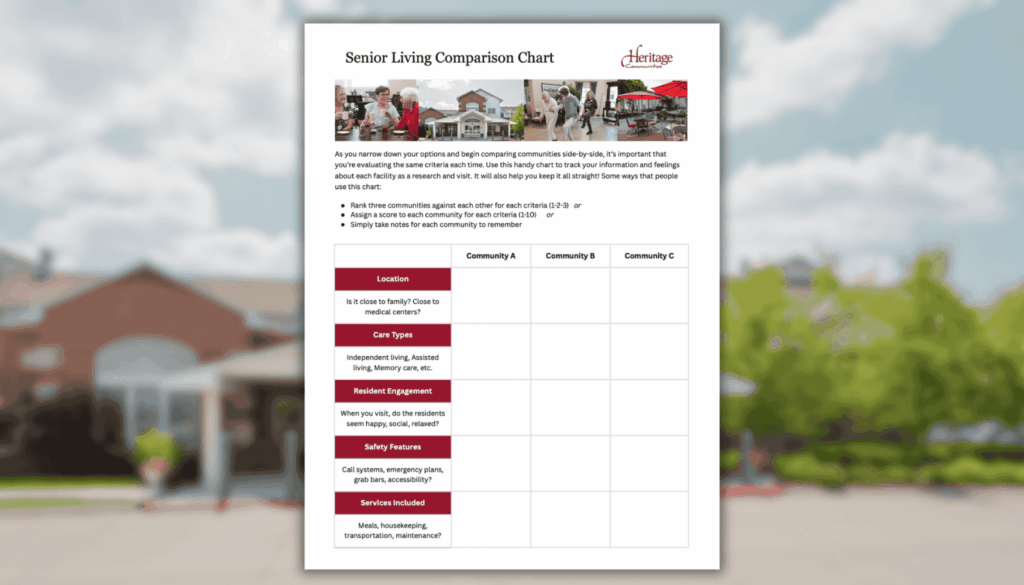The Senior Living Conversation: How to Talk to Parents About Assisted Living
Any good conversation is as much about active listening as it is about talking. That’s a good thing to remember when having a senior living conversation with your parents. It can be an opportunity to share ideas, concerns, and helpful facts on how a lifestyle choice such as assisted living could open the door to...

Any good conversation is as much about active listening as it is about talking. That’s a good thing to remember when having a senior living conversation with your parents. It can be an opportunity to share ideas, concerns, and helpful facts on how a lifestyle choice such as assisted living could open the door to new freedom and peace of mind for them, as well as you.The senior living conversation: different mindsets, same goals.
As an adult child, you are more likely to be focused on pertinent facts, statistics, and examples. You want to be sure that you and your family are making the right choice. On the other hand, your parent or loved one is probably more driven by emotion and even a bit of fear. They need to feel in control. They want you to hear them. And they want to be sure they aren’t giving up the things that matter most to them.

Tips to make the senior living conversation positive and productive:
- Be ready to listen. Let your parent know they have your full attention, and let them choose the pace of the senior living conversation. Give them lots of opportunities to find their words and say what’s really on their minds. Remember, this is a dialogue, not a lecture. It’s a decision you will reach together and over time.
- Ask them what they think. Give some thought in advance of what questions you’d like to ask them. Have them describe how they see their older years unfolding. What do they think they will need? Are there issues they are worrying about? What do they absolutely not want, and what do they feel they must have? A productive senior living conversation should feel like an invitation for all involved to be as candid as possible.
- Be direct, but don’t lay blame. If you are concerned about their safety or wellness living on their own, let them know in a loving manner. Avoid telling them their needs are inconveniencing you in any way. “I care about you and want you to be safe” should be the message. It’s a good transition to how living in an environment where assistance is always available, such as assisted living, might be something to consider.
- Be honest. Don’t mislead your loved one. You will most likely want to have more than one senior living conversation with them, so building their trust is key. Even if your parent has cognitive issues, don’t lie to them about the situation. It’s possible they have been hoping you might bring up the possibility of helping them find the help they need, especially if they are feeling vulnerable living at home.
- Keep the senior living conversation hopeful. Be sure it’s not all about what’s wrong, but instead what possibilities lie ahead for a more carefree, happy, and rewarding life. Your loved one might appreciate replacing thoughts of worry with examples of what it’s like to live in a vibrant assisted living setting. If you know a friend whose parent has made the move, consider relating those details. It’s very possible your loved one still thinks of senior living as a gloomy nursing home and doesn’t realize how it can relieve their worries and free them to enjoy life more than ever.
Senior living is not what it used to be—and that’s worth talking about.
Talking with your parent or loved one about making a change doesn’t have to be something you dread, especially with today’s excellent options. Assisted living could be the answer for an older adult who is ready to add freedom, inspiration, and enhanced wellness to their life. Don’t fear the senior living conversation—keep it positive and see where it takes you.
The right touch of personal care: assisted living at Heritage. Let us help you and your family. Download our free guide, The Complete Guide to Choosing Between Senior Living Options. Or contact us today.







